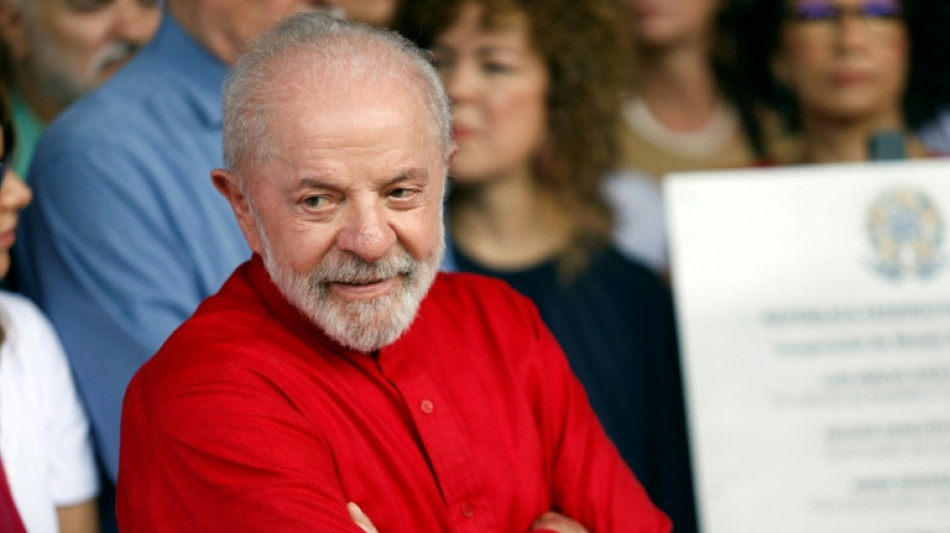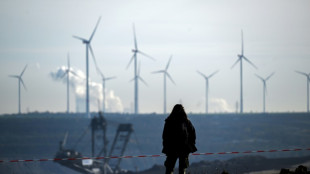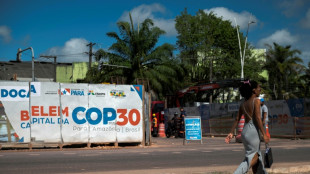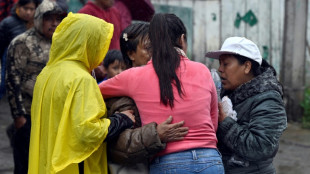
Brazil hopes Amazon summit can unite world for climate action

Brazil is betting its much-hyped climate summit in the Amazon next month can deliver something increasingly rare in a fractured world: proof that nations can still unite to confront a global crisis.
It faces tough odds, with a hostile United States unlikely to show up, waning political appetite for climate action, and eye-watering prices for accommodation threatening turnout.
About 50,000 attendees are expected at the two-week COP30 conference starting November 10 in Belem, a poor northern city best known as a gateway to the Amazon rainforest.
On Monday, climate ministers and representatives of 67 countries began meeting in Brasilia ahead of the marathon UN negotiations that bring together nearly every nation for the most important climate talks of the year.
Brazil's Environment Minister Marina Silva highlighted the need to "prevent not just a point of no return for the planet's climate, but also for climate multilateralism -- increasingly in doubt amid the poor follow-through on past agreements."
UN Climate Change Executive Secretary Simon Stiell urged countries to "go that little bit further" in the lead-up to the main talks.
Belem is a symbolic yet fraught setting and a personal choice of Brazil's President Luiz Inacio Lula da Silva, who wants to spotlight the rainforest's role in absorbing carbon dioxide.
But pressure is mounting on COP30 to provide more than just a scenic backdrop as the world approaches the 1.5C warming target agreed under the Paris climate accord a decade ago.
The last two years were the hottest ever recorded, and major polluters are not cutting emissions fast enough to avoid destructive and potentially irreversible changes to the planet.
- Attendance uncertain -
Lula has come under fire for what critics call a contradictory stance on the environment.
He has slowed Amazon deforestation and urges countries to step up and reduce emissions, all while enthusiastically backing new projects at home to drill for oil -- which he says the world is not ready to live without.
He has invited dozens of leaders to Belem, but attendance remains uncertain amid complaints over astronomical accommodation costs. Schools, cruise ships, and even rent-by-the-hour motels have been enlisted to offer cheaper options.
Prince William will represent Britain's King Charles and the leaders of South Africa and Colombia are expected, but Austria's president has already declined, citing high hotel prices.
Officials in Gambia, Cape Verde and Japan also told AFP they expected to reduce the size of their delegations.
"I know the problems in Belem," said Lula, who has refused calls to move the meeting and vowed he would sleep "on a boat, in a hammock."
"We accepted the challenge of organizing COP here because we must show the world what the Amazon is."
Lula, who visited the Vatican on Monday, said he had invited Pope Leo XIV to Belem but the pontiff cannot come because he has "some other commitments."
- 'Deep mistrust' -
US President Donald Trump, who declared climate change a "con job" last month, is not expected to attend, nor is anyone else from his administration.
The United States intends to withdraw from the Paris Agreement for a second time as it promotes fossil fuels at home and abroad.
Brazil is adamant that COP30 shows global climate solidarity is alive even as wars, tariffs and populist politics shake the international order.
COP30 CEO Ana Toni told AFP in an interview in September that it was an "extremely difficult" time to be rallying for climate change.
"COPs are not isolated. They reflect the tensions of geopolitics," she said.
Forests will be a focus in Belem, but "we shouldn't expect headlines or agreements on big, flashy issues" at COP30, Marta Torres-Gunfaus, from sustainable development think tank IDDRI, told AFP.
A showdown over faltering climate action seems unavoidable, with India and the European Union among dozens of countries and blocs months late in submitting their latest 2035 emissions reduction targets.
Many commitments have fallen short of expectations, including from top polluter China.
Some of the world's poorest countries also want to reopen a tortured debate over the level of finance they receive from the richer countries that are most responsible for the climate crisis.
Asked in Brasilia about the availability of financing from rich countries to poor ones, COP30 President Andre Correa do Lago replied that there are "many requests, but far fewer promises."
Victor Menotti, spokesman for the NGO Demand Climate Justice said "there is a deep mistrust between rich and poor countries."
burs-np-jmi/fb/sla
I.Wroblewski--GL

 London
London

 Manchester
Manchester
 Glasgow
Glasgow
 Dublin
Dublin
 Belfast
Belfast
 Washington
Washington
 Denver
Denver
 Atlanta
Atlanta
 Dallas
Dallas
 Houston Texas
Houston Texas
 New Orleans
New Orleans
 El Paso
El Paso
 Phoenix
Phoenix
 Los Angeles
Los Angeles



